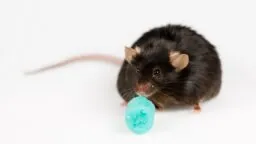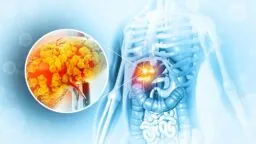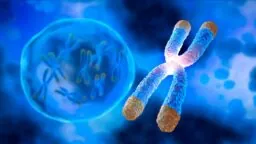Rejuvenation Roundup June 2024
- Telomerase, mitochondria, aging genes, and sarcopenia were all discussed this month.

Puzzle pieces are being fit together and connections are being made in understanding the massive number of biological changes that make up aging. Here’s how the science has progressed in June.
LEAF News
Team and activities
 Summer Could Be Big for Longevity Tech Investment: The weather isn’t the only thing heating up, as we have been busy advocating for research on aging. Here’s what our team has been doing recently on the longevity advocacy front.
Summer Could Be Big for Longevity Tech Investment: The weather isn’t the only thing heating up, as we have been busy advocating for research on aging. Here’s what our team has been doing recently on the longevity advocacy front.
Advocacy and Analysis
How to Defeat Aging? Two Scientists Offer Their Visions: In a much-anticipated debate, prominent aging researchers Aubrey de Grey and Peter Fedichev presented their competing, but also overlapping, theories about the relationships between aging, damage, and entropy.
Research Roundup
 Inhibiting a Transporter to Stop Senescence: Researchers publishing in Nature Aging have discovered that inhibiting a glucose transporter leads to a decrease in senescent cells by forcing a reduction in calories at the cellular level.
Inhibiting a Transporter to Stop Senescence: Researchers publishing in Nature Aging have discovered that inhibiting a glucose transporter leads to a decrease in senescent cells by forcing a reduction in calories at the cellular level.
Estrogen Metabolite Robustly Increases Lifespan in Male Mice: In the newest study by the Interventions Testing Program, 16α-hydroxyestriol and canagliflozin significantly increased lifespan in male mice but were deleterious for females. The Interventions Testing Program is a golden standard for testing lifespan-extending interventions on mice.
 Oral Microbiome Associated with Cognitive Performance: An analysis of oral microbes in older adults has indicated an association between microbial diversity and executive function performance. The researchers suggest that changes to the oral microbiome can be a potential source of low-grade systemic inflammation, which might play a role in cognitive impairment and dementia development.
Oral Microbiome Associated with Cognitive Performance: An analysis of oral microbes in older adults has indicated an association between microbial diversity and executive function performance. The researchers suggest that changes to the oral microbiome can be a potential source of low-grade systemic inflammation, which might play a role in cognitive impairment and dementia development.
A New Approach to NAD+ in Sarcopenia: Researchers have published a potential new method of treating the age-related muscle loss known as sarcopenia in Aging Cell. It focuses on the gene NNMT, which was least expressed in young people, more expressed in older people, and even more expressed in older people with sarcopenia.
 A Natural Compound as an Osteoporosis Treatment: A team of researchers has found that corylin, a compound previously investigated for its anti-senesence properties, is effective against osteoporosis in a mouse model. Corylin was first discovered in Psoralea corylifolia, a plant commonly used in Chinese traditional medicine. This is far from the first investigation into its effects.
A Natural Compound as an Osteoporosis Treatment: A team of researchers has found that corylin, a compound previously investigated for its anti-senesence properties, is effective against osteoporosis in a mouse model. Corylin was first discovered in Psoralea corylifolia, a plant commonly used in Chinese traditional medicine. This is far from the first investigation into its effects.
Treating Genetic Liver Diseases at Their Root: Researchers publishing in Cell Stem Cell have demonstrated that genetically diseased liver cells can be taken from human beings, altered in the laboratory, and used to regrow the livers of model mice.
 Mix of Lifestyle Interventions Might Reverse Alzheimer’s: In a randomized, controlled trial in humans, scientists have demonstrated that a multimodal lifestyle intervention consisting of a vegan diet, exercise, supplements, and stress management can improve the symptoms of Alzheimer’s.
Mix of Lifestyle Interventions Might Reverse Alzheimer’s: In a randomized, controlled trial in humans, scientists have demonstrated that a multimodal lifestyle intervention consisting of a vegan diet, exercise, supplements, and stress management can improve the symptoms of Alzheimer’s.
Some Brain Changes May Cause Strength Loss: In Aging Cell, researchers have published data on a causal link between brain structure changes and age-related muscle loss (sarcopenia). They have discovered that crucial motor areas are no longer able to make muscles move properly.
 A Protein Necessary for Corneal Healing: Researchers have discovered a protein that is necessary for proper healing of damaged corneal tissue and that this protein decreases with age. It may be possible to restore the levels of this protein in older people.
A Protein Necessary for Corneal Healing: Researchers have discovered a protein that is necessary for proper healing of damaged corneal tissue and that this protein decreases with age. It may be possible to restore the levels of this protein in older people.
Combating How Space Travel Weakens Immune Function: It has been known for many years that microgravity in space interferes with human physiology in negative ways. Researchers at the Buck Institute have published a fascinating new study that shows the influence of microgravity on immune cells.
 A Reason Why Livers Accumulate Fat with Age: Researchers have discovered one of the reasons why fatty liver disease, even without alcohol consumption, increases with aging. A gene that encodes for short-chain fatty acids greatly increases with advancing age.
A Reason Why Livers Accumulate Fat with Age: Researchers have discovered one of the reasons why fatty liver disease, even without alcohol consumption, increases with aging. A gene that encodes for short-chain fatty acids greatly increases with advancing age.
Walking Reduces Risk of Low Back Pain Recurrence: Publishing in The Lancet, scientists have shown that simple walking can have significant effects on the recurrence of back pain and disability metrics. In this study, walking reduced the risk of an activity-limiting recurrence of low back pain by 28%.
 New Drug Restores Telomerase, Improves Cognition in Mice: Scientists have identified a small molecule that upregulates telomerase reverse transcriptase (TERT) in multiple tissues, improving health and cognition in old mice.
New Drug Restores Telomerase, Improves Cognition in Mice: Scientists have identified a small molecule that upregulates telomerase reverse transcriptase (TERT) in multiple tissues, improving health and cognition in old mice.
Study Links Stress to Mitochondrial Dysfunction in the Brain: For the first time, scientists have shown that the abundance of proteins needed for mitochondrial energy production in human brains is linked to perceived psychosocial experiences.
 Blueberry Polyphenol May Relieve Plastic-Caused Sperm Damage: A recent paper has investigated the impact of polystyrene nanoplastics on the molecular processes of male reproductive tissues in mice. Microplastic and nanoplastic contamination is a worldwide public health concern for a good reason.
Blueberry Polyphenol May Relieve Plastic-Caused Sperm Damage: A recent paper has investigated the impact of polystyrene nanoplastics on the molecular processes of male reproductive tissues in mice. Microplastic and nanoplastic contamination is a worldwide public health concern for a good reason.
Encouraging Mitochondrial Maintenance to Fight Senescence: Researchers have published a method of rescuing cells from damaged mitochondria and cellular senescence, potentially alleviating major aspects of aging by increasing mitophagy: the process by which cells consume their malfunctioning power plants.
 70 Is Indeed the New 60, Study Suggests: Scientists have found that older people currently retain more youthful abilities than people who were the same age did in previous decades. The intrinsic capacity of the 1950 cohort at age 68 was significantly higher than that of the 1940 cohort at age 62.
70 Is Indeed the New 60, Study Suggests: Scientists have found that older people currently retain more youthful abilities than people who were the same age did in previous decades. The intrinsic capacity of the 1950 cohort at age 68 was significantly higher than that of the 1940 cohort at age 62.
Developing a New Aging Clock for Medical Professionals: In Nature Aging, researchers have published the creation of a new clock that uses multiple metrics to evaluate biological aging. This is not an epigenetic clock, and a version has been created based on simple blood tests and clinical metrics.
Healthy Lifestyle and the Likelihood of Becoming a Centenarian: Individuals with the highest healthy lifestyle score (constructed from smoking, exercise, and dietary diversity) had a significantly higher likelihood of becoming a centenarian, compared with those with the least healthy lifestyle behaviors.
Ketogenic diet administration later in life improves memory by modifying the synaptic cortical proteome via the PKA signaling pathway in aging mice: A ketogenic diet modifies brain function even when it is administered later in life and recapitulates molecular features of long-term administration, including the PKA signaling pathway, thus promoting synaptic plasticity at advanced age.
Precision nutrition impact on metabolic health and quality of life in aging population after a 3-month intervention: These results support the benefit of precision nutrition approaches for promoting healthy aging and emotional well-being, enhancing the quality of life in aging populations.
Heavy resistance training at retirement age induces 4-year lasting beneficial effects in muscle strength: In well-functioning older adults at retirement age, 1 year of heavy resistance training may induce long-lasting beneficial effects by preserving muscle function.
An Examination into the Effects of a Nutraceutical Supplement on Cognition, Stress, Eye Health, and Skin Satisfaction in Adults with Self-Reported Cognitive Complaints: Twelve weeks of supplementation with a nutritional supplement was associated with improvements in episodic memory and several biological markers associated with cognitive health.
Epigenetic predictors of species maximum life span and other life-history traits in mammals: Maximum lifespan is determined in part by an epigenetic signature that is an intrinsic species property and is distinct from the signatures that relate to individual mortality risk.
Empagliflozin rescues lifespan and liver senescence in naturally aged mice: These results indicate that empagliflozin intervention could be considered a potential strategy for extending lifespan and slowing liver senescence in naturally aged mice.
Photobiomodulation in the aging brain: a systematic review from animal models to humans: PBM holds promise as a non-invasive intervention for enhancing cognitive function and in the modulation of brain functional reorganization.
Cognitive and Emotional Effect of a Multi-species Probiotic Containing Lactobacillus rhamnosus and Bifidobacterium lactis in Healthy Older Adults: There were significant improvements observed in planning and problem-solving skills, selective attention, cognitive flexibility, impulsivity, and inhibitory ability.
Probiotic-Reduced Inflammaging in Older Adults: A Randomized, Double-Blind, Placebo-Controlled Trial: The probiotic analyzed in this study was found to have a moderate effect on low-grade inflammation in a healthy older population.
News Nuggets
 Hevolution Announces New Funding Initiatives: Hevolution, the Saudi-funded healthspan non-profit behemoth, has been around for about two years, and it hasn’t been wasting any time, funding research and investing in biotech companies. With its yearly budget touching 1 billion dollars, Hevolution is the biggest non-profit donor and one of the most important players in this field today.
Hevolution Announces New Funding Initiatives: Hevolution, the Saudi-funded healthspan non-profit behemoth, has been around for about two years, and it hasn’t been wasting any time, funding research and investing in biotech companies. With its yearly budget touching 1 billion dollars, Hevolution is the biggest non-profit donor and one of the most important players in this field today.








